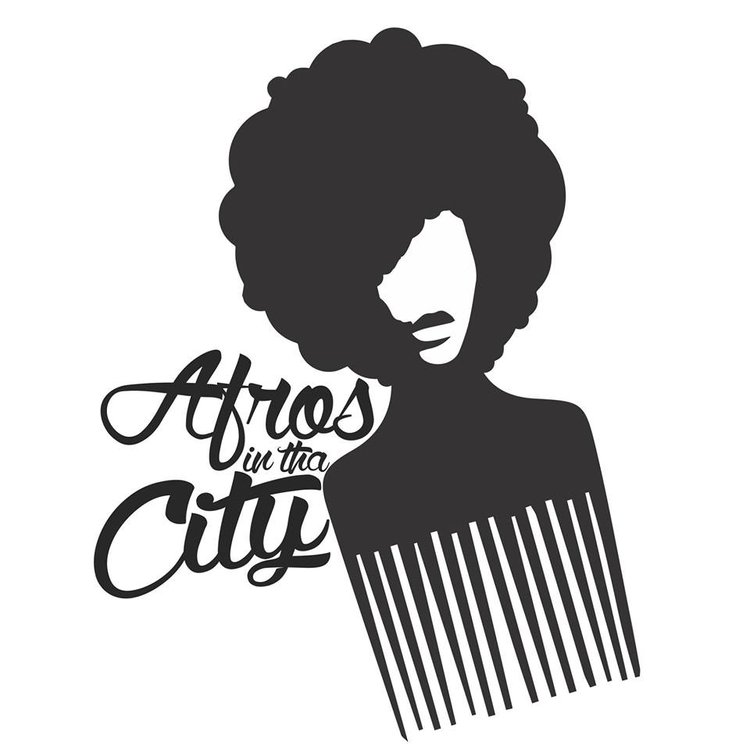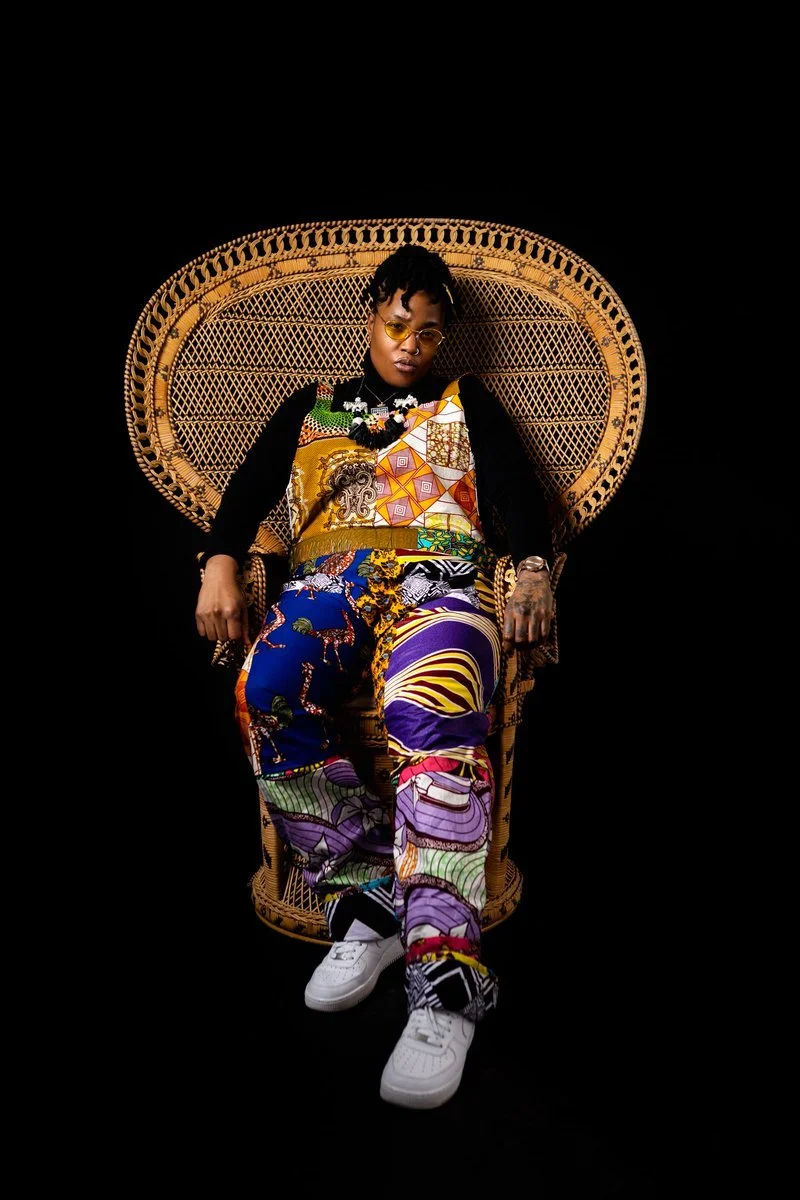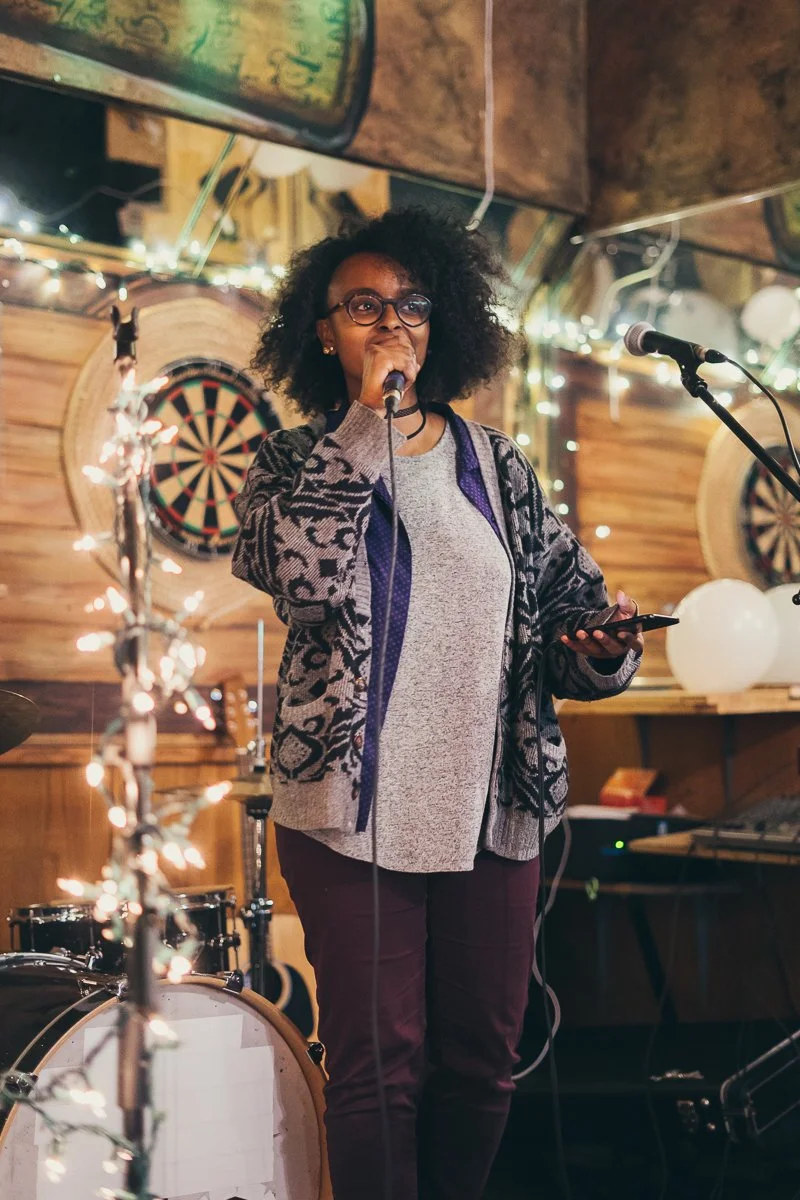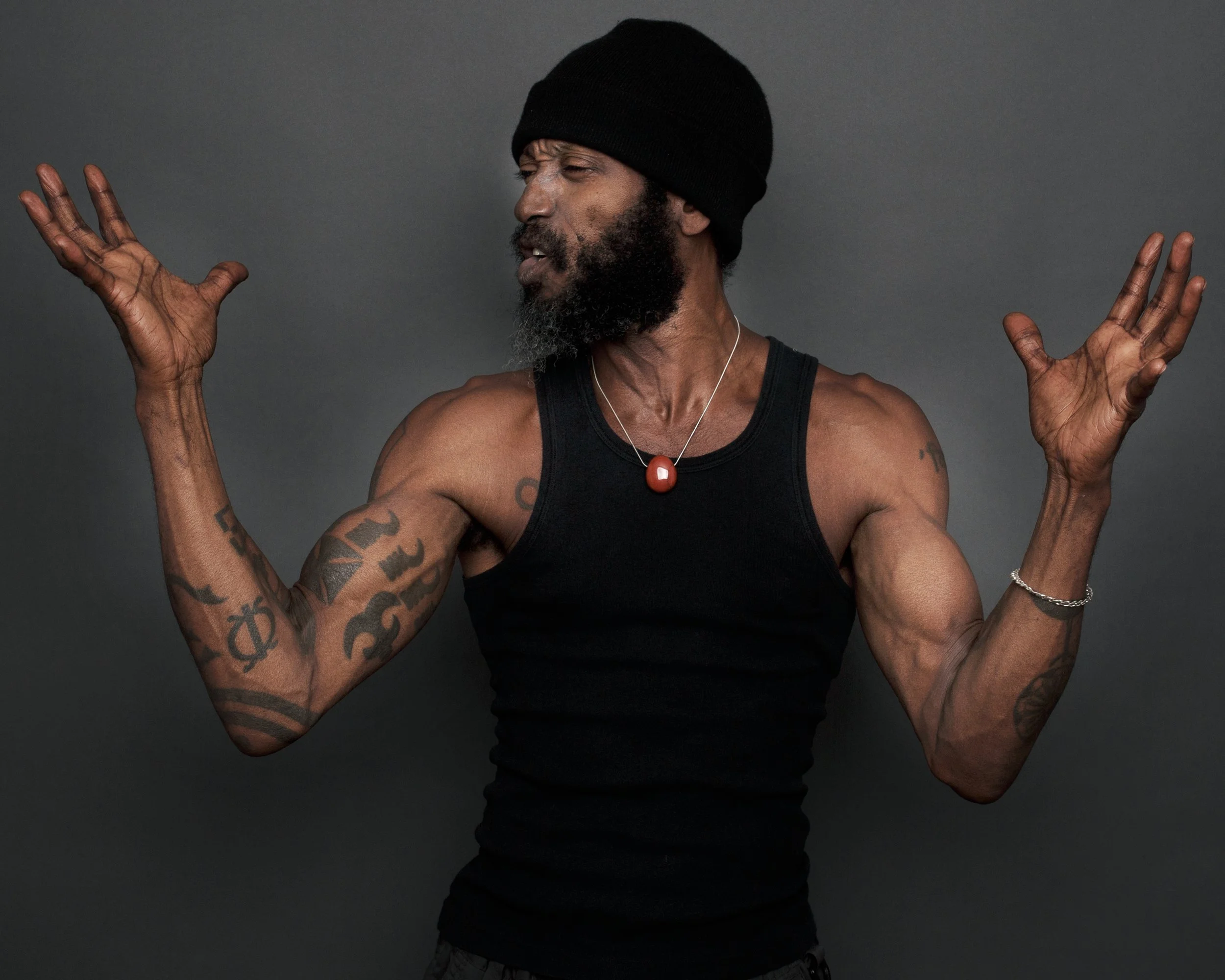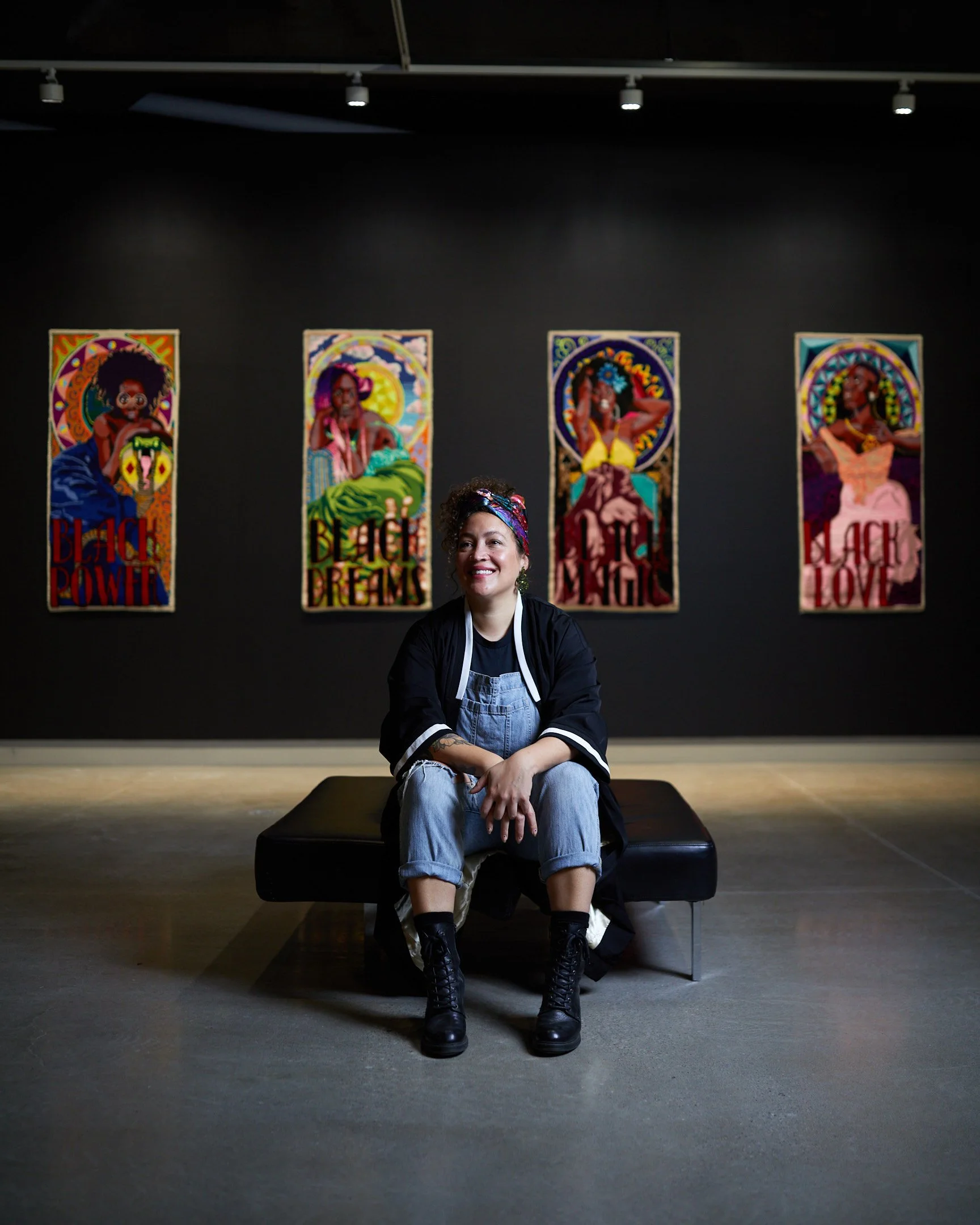*This article was originally published as an Instagram series in partnership with The Sprawl
Afros in Tha City was born out of the desire to see a future for Black folks in Mohkinstsis (Calgary). A future marked by success, joy and triumph. A future free from barriers, alienation and police brutality.
So while we collectively mourn the Black futures that never had a chance to take form and hope for a better tomorrow, we can’t help but wonder: Are things getting any better?
Part of honouring Black history must include paving the way for brighter Black futures. If we’re not doing that, our Black History Month celebrations are merely items in a content calendar, or worse, harmfully performative measures.
At Afros In Tha City, we want to see Black folks thriving all year round, and our way of contributing to this mission is by amplifying voices and fostering a sense of community and belonging. So as Black History Month is behind us, we wanted to check in on folks to see how optimistic they are about their future here in Calgary.
We talked to five Black artists about where they see themselves, where they see Calgary going, and what challenges face Calgary today.
Welcome to Black Futures: Artists In The Sprawl.
Sinzere
Sinzere is a Calgary-born and raised hip hop artist. Her debut album is set to be released this spring.
"For Black artists—and really, artists in general—there’s limited opportunity here in Calgary. This is about to be the biggest year of my career, and we are still in this pandemic, so I don’t know how much I’ll be here after the album gets released.
"I think that the biggest challenge for artists in Calgary is breaking down the barriers of gatekeepers. We have a lot of non-Black people that are the gatekeepers of our culture and that are dictating what Black music is or what a Black artist should be or should not be. And unfortunately, putting a lot of non-Black people in positions Black artists should be in.
"In the future, I think real change will happen by just looking at that whole structure, and asking ourselves: 'Why is that a barrier? Why do we allow it to be a wall?' It’s about breaking down that wall. That’s what Calgary’s future has to look like. Like everything else, it’s gonna take time, because these are very old structures. And I think we are making great strides, you know? I think the world is definitely changing. Artists like me, and others doing similar work, we do what we do and it contributes to that change.
"It’s important for me to carve out representation for Black creatives. I’m fighting for the liberation of my people. But I’m also a queer woman. I'm a Black queer woman, and this means that I’m often fighting for something else too, even within my community. My music is about the fight for queer liberation too. There are so many different layers, but the fight just continues."
— as told to Aurora Sol.
Bethel Afework
Bethel Afework is a multidisciplinary artist whose main discipline is spoken word. She is a member of the duo BASK with Siddharth Kataria.
"This city does really feel like home because this is where my family is. This is where I've met really awesome people growing up."
"I am still trying to carve out space in the city. Not just for myself, but for people like me that feel like Calgary doesn't really have a space for them to tell their stories, especially young BIPOC people.
"I think that Calgary has so much potential. It's fertile ground for ideas. Although you could move to a city like Vancouver, Toronto or Montreal, where they're seen as a lot more vibrant, I feel that people will eventually come back and flock to Calgary because there's so much saturation there.
"I'd say the city's biggest challenge is trying to break away from how it's used to doing things. I feel a lot of people are stuck with the mindset that 'Calgary will never change.' And with people in power that may have money and investments—whether that be city government, the administration, landlords, property management companies, people that have the ability to provide space—they are used to doing things a certain way.
"They're not used to investing in a small grassroots organization and taking that risk on someone they've never heard of. They would rather invest millions and millions of dollars on a bigger project that makes it seem like they're doing something bigger, and not give micro-opportunities to very small people.
"The true innovation, the thriving, and the reinvigoration of our city is going to come from the people who are grassroots and quiet. You're going to have to really go out and see what's going on in those dingy underground bars. Who are these up-and-coming artists that you've never heard of?"
—as told to Ado Nkemka
Photo Credit: Elizabeth Stange @ eli.stang www.elizabethstange.com
Wakefield Brewster is a poet, educator, public speaker, performance artist, wellness specialist, and massage therapist from Toronto who relocated to Calgary nearly 20 years ago.
"I view our city as a place where I have been able to embrace the stillness and space of the city as a catalyst for my own craft.
"I believe I have been able to make more of an impact here than back in Toronto, but ultimately I would rather be known for expanding people’s literary layout, than be remembered by name. Accolades are not my motivator. Helping others is my motivator. I believe that if everyone expands their relationship with literacy a little more, there is a chance of people understanding each other better, and ultimately communicating more easily with one another.
"I believe Calgary has a lot of potential, especially for urban growth within the arts. While I am thankful for my opportunities, I also want to pull up a chair for the next generation of voices in Calgary. When working with youth or people in general, my goal is to help them find that inner voice in themselves, even if just for one poem.
"My hope is that Calgary will look beyond its traditional perspective and create more opportunities within the arts, especially for artists of colour."
- as told to Chris L. Butler
Simone Elizabeth Saunders in front of “Four Queens” at Contemporary Calgary. Photo by Jesse Tamayo.
Simone Elizabeth Saunders is a textile artist who holds a BFA from Alberta University of the Arts. She was the national winner in the Bank of Montreal’s 1st Art! competition in 2020. She is also a co-founder of the Ellipses Tree Collective, an Afrocentric theatre company in Calgary.
"I do consider Calgary home, being a born-and-raised Calgarian. I had moved to Toronto for nearly eight years in the midst of my theatre career, but I knew I wanted to do visual arts—which is what brought me back to go to university here in Calgary.
"I grew up in the southeast. We grew up with a very multicultural group of kids. I never really felt like an outsider in Calgary. It was a really vibrant household that I had, in terms of my father bringing his Jamaican culture to our home. My mother was born and raised in Canada. She was always very nurturing of our extracurricular activities in our lives. So I did dance and piano and was really always nurtured to push the creative side of myself.
"We started the Ellipses Tree Collective because there was a lack of reflection. There were no women of colour getting lead roles. That notion of 'colourblind casting' was a very budding notion in the mid-2000s.
"And that's also what brought me back to the visual arts—that there's still not that reflection of Black art within the institutions that have been around for quite some time.
"I want to stay here. A lot of artists, as I'm sure you've witnessed, will leave for Vancouver or Toronto. I am optimistic about this city’s future. It’s important I stay here.
"My message for up and coming artists in Calgary is to push those boundaries. Do what you are passionate about. Don't let anyone stop you. There is room for you and there is a community here that is supportive of you. What you have to say is important!"
– as told to Dooshima Jev
Joyce Nseya
Joyce Nseya is born-and-raised Calgary painter specializing in portraiture and abstract work. Their recent project, titled "Same but Different," touches on the commonality between anti-Black racism and anti-Asian hate, highlighting the parallels between the two struggles.
"Calgary definitely feels like home because I've been here forever, but I’m still trying to find my fit. There's not much integration in Calgary between artists. When there are Black clusters, or other racialized groups, they kind of stick to their own. If you know it, you know it; if you don't, you don't really know where to look.
"I feel like in the artist world, if there's a lack of diversity it’s because people's voices aren't getting out there as much. You'll see whoever's already known, or you'll see a specific thing targeted to specific people—so it's tougher to see diversity. Same with the real world in Calgary. Growing up, in school, I was always the only Black person in my class. It's tough to find your space if you're a minority here.
"But in general, I think Calgary is going places. There are a lot of people discovering Calgary and a lot of people that are coming here. And they're obviously bringing their own facets. I feel like as more people come, and as more people create things that are interesting to them and bring their diversity, then it's just gonna get better from there—so I'm very optimistic for the future."
– as told to oualie frost
